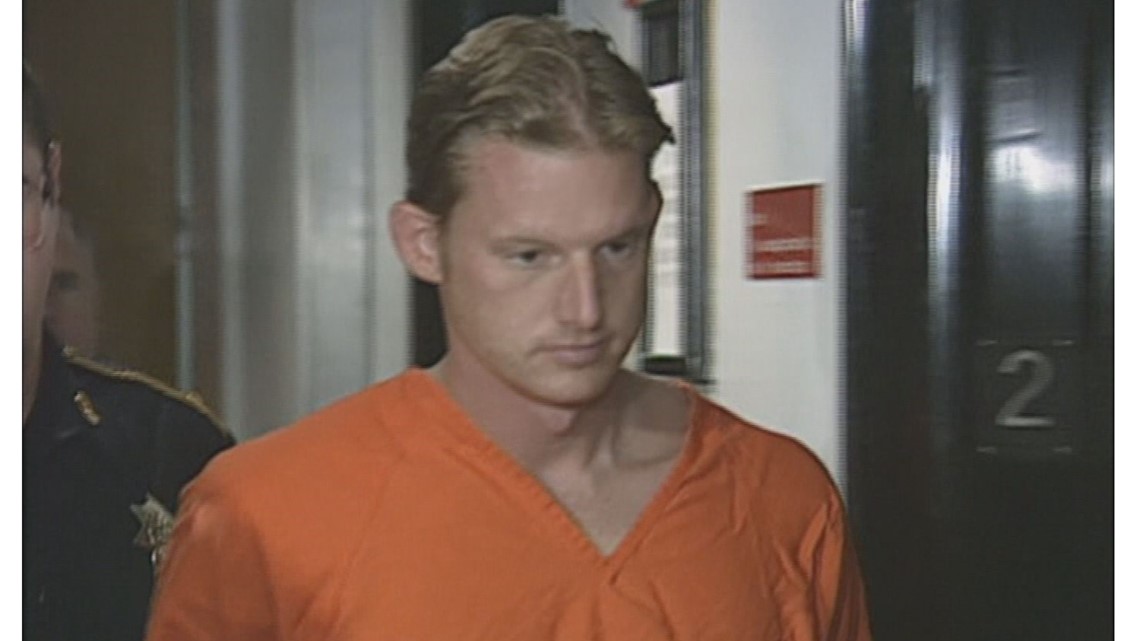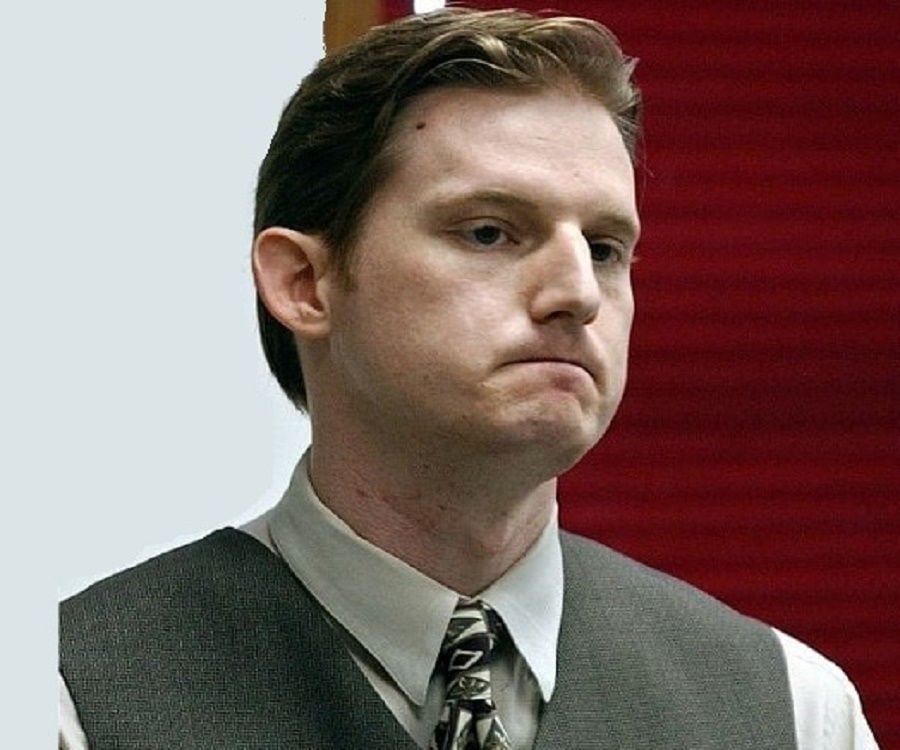Can a man, seemingly ordinary, transform into a monster capable of unspeakable acts? In the chilling case of Christian Longo, the answer is a resounding, horrifying yes.
The name Christian Longo is synonymous with a horrific crime that shook the quiet state of Oregon in the early 2000s. In December 2001, the idyllic facade of a seemingly perfect family shattered, revealing a darkness that few could have imagined. Longo, a husband and father of three, perpetrated a series of brutal murders, extinguishing the lives of his wife, Mary Jane, and their children: Zachery, Sadie, and Madison. The details of the crimes are gruesome, the motivations murky, and the aftermath a testament to the enduring capacity for evil that can exist within the human heart.
| Category | Details |
|---|---|
| Full Name | Christian Michael Longo |
| Born | January 23, 1974 |
| Birthplace | Michigan, USA |
| Victims | Mary Jane Longo (Wife), Zachery Longo (Son), Sadie Longo (Daughter), Madison Longo (Daughter) |
| Crime | Murder of his wife and three children |
| Date of Crime | December 2001 |
| Location of Crime | Oregon, USA |
| Apprehension | Captured in Mexico |
| Trial and Sentencing | Convicted in 2003; Initially sentenced to death, commuted to life without parole in 2022 |
| Known For | High-profile murder case; Subject of the book and film "True Story" |
| Motives (Alleged) | Financial troubles, fraudulent lifestyle, to cover up mounting debts and avoid legal issues. |
| Personality Disorder (Reported) | Narcissistic Personality Disorder (as per his own writings) |
| Current Status | Incarcerated, serving a life sentence without the possibility of parole. |
| Notoriety | One of the most infamous murder cases in Oregon history. |
| Reference Website | Oregon Department of Corrections |
Longo's meticulously crafted facade began to crumble as financial woes and a life built on deception started to unravel. Raised within the strict confines of a Jehovah's Witness background, his later actions would stand in stark contrast to the values he was presumably taught. The murders were not impulsive acts of passion; they were calculated, cold, and methodical. The first victims were Mary Jane and baby Madison, initially strangled in the family home. Their bodies were then packed into luggage and loaded into the trunk of the car, a chilling prelude to the events to come.
The narrative of Christian Longo's crimes is a tapestry woven with threads of deceit, desperation, and a chilling lack of remorse. The details that have emerged over the years paint a portrait of a man driven by a desire to maintain a carefully constructed image, even at the cost of his family's lives. Financial troubles and a life of fraud were reportedly the primary catalysts. Longo, it seemed, was willing to go to any length to protect his carefully curated persona.
Following the murders, Longo fled to Mexico, assuming a new identity and attempting to outrun the long arm of the law. This act of desperation only served to amplify the heinous nature of his crimes and the depths of his depravity. However, his attempt to escape justice was short-lived. He was eventually apprehended, brought back to the United States, and faced the legal consequences of his actions.
The trial that followed was a media spectacle, capturing the attention of a nation grappling with the unthinkable. The prosecution presented a mountain of evidence, exposing Longo's calculated planning and the brutal nature of the killings. In 2003, the jury delivered a verdict: guilty. He was sentenced to death by lethal injection. However, the legal saga surrounding Longo's case did not end there. In 2022, the death sentence was commuted to life in prison without the possibility of parole, a decision that, while sparing his life, ensured that he would spend the rest of his days behind bars, haunted by the ghosts of his past.
Longo's story has transcended the confines of the courtroom and has been immortalized in the Michael Finkel book, "True Story," and its subsequent film adaptation. The book, in particular, delves into the complexities of Longo's personality and the disturbing nature of his crimes. It explores the twisted relationship between Longo and Finkel, a journalist who had his own brushes with ethical boundaries, and sheds light on the slippery slope of truth and deception. The film adaptation, starring James Franco and Jonah Hill, brought the chilling narrative to a wider audience, cementing Longo's place in the annals of criminal infamy.
The murders themselves are a testament to the brutality of the act. The bodies of the children were found in the cold waters off the Oregon coast. The meticulous planning and execution revealed a cold detachment and a willingness to commit unspeakable acts. Longo's actions underscore the frightening potential for evil that can exist within individuals who appear, on the surface, to be ordinary. His actions, from the initial act of violence to his attempted escape, and the assumed new identity, speak volumes about a dark soul.
The grim details of the case paint a chilling picture of a man whose actions were fueled by a combination of financial desperation, a need to preserve a false image, and a profound lack of empathy. While the precise details of his motivations remain a subject of speculation, the evidence suggests a man willing to sacrifice everything, including his own family, to avoid facing the consequences of his choices.
The psychological profile of Christian Longo remains a topic of debate, with speculation about the extent to which personality disorders, such as narcissistic personality disorder, may have influenced his actions. While his own writings touch upon these themes, it is ultimately impossible to fully understand the complex motivations that led him to commit such horrific crimes. The case has left investigators, psychologists, and the public at large grappling with the darkness that can reside within human beings.
The story of Christian Longo serves as a grim reminder of the fragility of life and the potential for evil that can reside within the human heart. His name is forever etched in the annals of criminal history. His story serves as a cautionary tale, a reminder that the veneer of normalcy can often conceal a darkness that is both shocking and profoundly disturbing. The fact that his crimes were committed in an attempt to cover up financial difficulties adds an additional layer of complexity and serves as a warning about the dangers of unchecked ambition and the lengths to which some will go to protect their self-image.
The case also raises questions about the nature of truth and deception. The book and film "True Story" explore this theme, as the relationship between Longo and journalist Michael Finkel blurred the lines of fact and fiction. It reminds us that in the pursuit of a story, we must remain vigilant in our quest for the truth. His story is not just about the heinous murders; its about the manipulation of the narrative, the fragility of trust, and the complex interplay of truth, lies, and self-deception. His organ donation campaign from prison, adds another layer of complexity to the already perplexing saga of his life and crimes.
The legacy of Christian Longo is one of unimaginable pain and suffering. For the families and friends of the victims, the wounds will likely never fully heal. The case also leaves a haunting question: What transforms an ordinary person into a killer? What drives someone to destroy their entire family, leaving behind a trail of devastation and a legacy of unending sorrow? While the precise answers may never be known, the case of Christian Longo will continue to haunt the collective consciousness, serving as a chilling reminder of the capacity for evil that can reside within the human heart.
The fact that the events unfolded in Oregon, a state often associated with natural beauty and tranquility, only serves to heighten the sense of shock and disbelief. The idyllic backdrop made the brutality of the crimes even more jarring. The geographical context underscores the randomness of evil and the unsettling realization that such darkness can strike anywhere, at any time.
Eight years after his conviction, Longo was scheduled for lethal injection. The fact that he was ready for lethal injection speaks volumes about the weight of the crimes he committed, even as his life was ultimately spared. His story raises complex ethical and moral questions about justice, punishment, and the very nature of good and evil.
The narrative of Christian Longo's crimes is a study in contrasts: the ordinary versus the extraordinary, the loving father versus the cold-blooded killer, the illusion of the perfect family versus the stark reality of unimaginable violence. His story will continue to captivate, shock, and disturb, reminding us of the hidden darkness that can lurk beneath the surface of everyday life.


